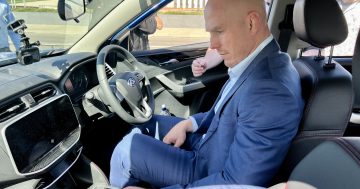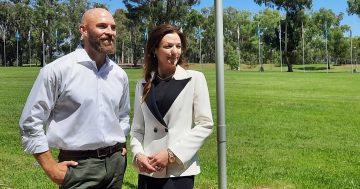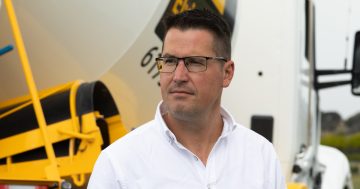
James Savoulidis, Tjanara Goreng Goreng, Zed Seselja, Kim Rubenstein, Katy Gallagher, David Pocock at the Region Media Senate candidate debate. Photo: Michelle Kroll.
Price does matter when it comes to making the switch to electric, according to this week’s reader poll.
Electric cars are promoted as the future for everyday motoring but the biggest hurdle for many ordinary people is cost. At around $50,000 for the most basic models, electric vehicles are still a steep climb beyond a new car starting at just north of $20,000.
So would it make a difference to you if the price came down substantially? Or are you convinced that electric vehicles are still a long way from matching the performance of a conventional internal combustion engine?
We asked If electric vehicles were cheaper, would you buy one? A total of 837 readers voted.
Your choices were to vote No, I still have doubts about them. This attracted 35 per cent of the total, or 297 votes.
Alternatively, you could vote Yes, that’s the incentive I need. This attracted 65 per cent of the total, or 540 votes.
This week, as the election approaches on 21 May, we’re wondering what matters to you most when casting your vote.
Last week, Region Media held the only ACT Senate candidates’ debate to include both major party candidates, the Greens and United Australia Party, and leading independent candidates David Pocock and Kim Rubenstein.
It was a chance to grill the candidates on their policy promises and ask where they’d direct their preferences. Preferences will ultimately decide whether there’s a boil over for the second seat, held by Zed Seselja on a slim margin since 2013.
Liberal Senator Seselja is under challenge from two independent candidates, David Pocock and Kim Rubenstein, and Green Tjanara Goreng Goreng.
And while Labor Senator Katy Gallagher is still likely to be comfortably re-elected, there are murmurings of concern from the ALP camp over how deeply the progressive and left vote will be split by a plethora of candidates with strong name recognition.
Polling commissioned by the Climate 200 group, which has funded both Rubenstein and Pocock and has been the subject of complaints from the Liberals, shows that Pocock is gaining ground on Senator Seselja. The Greens appear to have lost momentum and Ms Rubenstein and the United Australia Party candidate, James Savoulides, are level pegging, albeit in single figures.
While the most likely outcome remains that Senator Seselja retains his seat, a deluge of local advertising and campaign promises show that the major parties are more concerned than they have been for years about the result.
Change is less likely in the three House of Representatives seats where ALP members Alicia Payne, David Smith and Andrew Leigh sit on comfortable margins.
This week, we want to know:



















